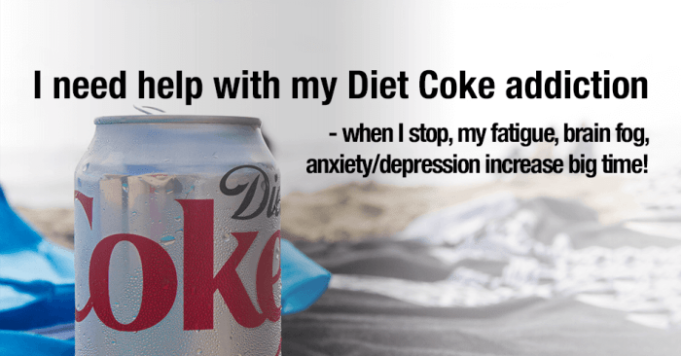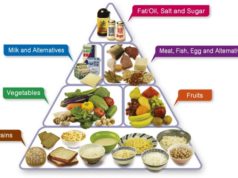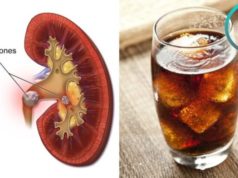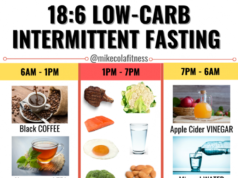How to quit Diet Coke? It’s a question many people grapple with. The allure of its bubbly fizz and sweet, artificial taste can be hard to resist, but the potential health consequences and addictive nature of this popular beverage can make you wonder if it’s worth the cost. While Diet Coke might seem like a harmless treat, its ingredients – caffeine and artificial sweeteners – can trigger cravings and make it difficult to kick the habit. This guide explores the complexities of Diet Coke addiction and provides a comprehensive roadmap to break free.
From understanding the underlying mechanisms that make Diet Coke so addictive to identifying personal triggers and developing gradual reduction strategies, we delve into the steps necessary to successfully quit. We also discuss the importance of lifestyle changes, coping mechanisms for withdrawal symptoms, and long-term success strategies. This guide aims to empower you with the knowledge and tools to take control of your Diet Coke consumption and embark on a healthier journey.
Understanding Diet Coke Addiction
While Diet Coke is marketed as a healthier alternative to regular soda, it can still be addictive due to its combination of caffeine and artificial sweeteners. Understanding the mechanisms behind this addiction can be crucial in breaking free from its grip.
The Role of Caffeine
Caffeine is a stimulant that can lead to dependence. When consumed regularly, the body develops a tolerance, requiring more caffeine to achieve the same effects. This can lead to withdrawal symptoms such as headaches, fatigue, and irritability when caffeine intake is reduced or stopped.
Diet Coke contains approximately 42mg of caffeine per 12oz can.
The caffeine in Diet Coke provides a temporary boost in energy and alertness, which can be a rewarding experience. This positive reinforcement further strengthens the habit of consuming Diet Coke.
The Role of Artificial Sweeteners
Artificial sweeteners like aspartame and sucralose are designed to mimic the taste of sugar without the calories. However, they can trigger cravings for sweet foods and drinks. This is because they activate the same taste receptors in the brain as sugar, but without providing the same satiety.
Artificial sweeteners may disrupt the gut microbiome, which can further influence cravings.
The constant stimulation of these taste receptors can create a cycle of craving and consumption, making it difficult to break free from Diet Coke dependence.
Examples of Diet Coke Consumption Habits
Diet Coke consumption can become a habit in various ways:
- Social Cues: Drinking Diet Coke with meals or during social gatherings can create a strong association between the beverage and these activities, making it more likely to be consumed in these situations.
- Stress Relief: Some people turn to Diet Coke to cope with stress or anxiety. The caffeine provides a temporary boost in mood, which can reinforce the habit.
- Boredom or Habit: Drinking Diet Coke out of boredom or as a mindless habit can become a routine that is difficult to break.
Identifying Triggers and Patterns
Understanding the triggers that lead to Diet Coke consumption is crucial for successfully breaking the habit. By identifying these triggers and the patterns associated with your Diet Coke use, you can develop strategies to avoid them and ultimately reduce your dependence.
Identifying Common Triggers
Triggers are specific situations, emotions, or activities that make you more likely to crave Diet Coke. Recognizing these triggers is the first step in controlling your consumption. Here are some common triggers:
- Stress: When feeling stressed, many people reach for a sugary drink, including Diet Coke, for a temporary boost of energy or a sense of comfort.
- Boredom: During periods of inactivity or boredom, Diet Coke can provide a distraction or a way to pass the time.
- Social Situations: Diet Coke is often associated with socializing, and the presence of others can trigger a desire for it.
- Mealtimes: Many people are accustomed to having a Diet Coke with meals, and this can become an ingrained habit.
- Certain Activities: Certain activities, like driving or working at a computer, might be linked to Diet Coke consumption.
Analyzing Personal Patterns of Diet Coke Use
Once you have identified common triggers, it’s essential to analyze your personal patterns of Diet Coke use. This involves tracking your consumption over time and identifying specific situations, times of day, and emotional states that lead to cravings.
- Time of Day: Do you crave Diet Coke at specific times of day, such as in the morning, afternoon, or evening?
- Social Situations: Do you drink Diet Coke primarily when socializing with friends, family, or colleagues?
- Emotional States: Do you find yourself reaching for Diet Coke when you’re feeling stressed, bored, happy, or sad?
Strategies for Recognizing and Avoiding Triggers
Once you understand your triggers and patterns, you can start developing strategies to avoid them.
- Awareness: The first step is to become more aware of your triggers and the situations that lead you to drink Diet Coke.
- Avoidance: Once you’ve identified your triggers, you can start to avoid them. If stress is a trigger, find alternative ways to manage stress, such as exercise, meditation, or spending time with loved ones.
- Substitution: When you feel a craving coming on, try substituting Diet Coke with a healthier alternative, such as water, herbal tea, or fruit.
- Delay Tactics: If you can’t avoid a trigger, try delaying your Diet Coke consumption. Give yourself a few minutes to see if the craving passes.
- Distraction: If you’re feeling bored or restless, try distracting yourself with an activity you enjoy, such as reading, listening to music, or spending time with friends.
Gradual Reduction Strategies
Abruptly eliminating Diet Coke from your diet can be challenging and might lead to cravings and setbacks. A gradual reduction approach allows your body and mind to adjust more comfortably, increasing the likelihood of long-term success. By gradually decreasing your intake, you can minimize withdrawal symptoms and maintain a sustainable pattern of change.
Quitting Diet Coke can be tough, especially if you’re used to the sweet, fizzy kick. One thing that might help is exploring other options, like a healthier beverage that doesn’t have the same artificial sweeteners. Maybe you could try a sparkling water with a squeeze of lemon or lime, or even explore the world of kombucha.
If you’re looking for something a little stronger, you could even check out what diet can you drink alcohol , to see if there are any low-calorie options that suit your needs. Ultimately, the best way to quit Diet Coke is to find a replacement that you enjoy and that fits into your lifestyle.
Creating a Gradual Reduction Plan
A well-structured plan is crucial for successful gradual reduction. Start by assessing your current Diet Coke consumption. Track how many cans or bottles you consume daily or weekly. Once you have a clear understanding of your intake, you can begin to reduce it gradually. Here’s a suggested approach:
- Week 1: Reduce your intake by one serving per day. For example, if you usually drink three cans a day, reduce it to two.
- Week 2: Further reduce your intake by another serving, bringing it down to one can per day.
- Week 3: Continue reducing by half, consuming only half a can per day.
- Week 4: Try to completely eliminate Diet Coke or switch to a single serving on alternate days.
Remember, this is a general guideline. You can adjust the pace of reduction based on your individual needs and tolerance. The key is to be patient, consistent, and listen to your body.
Alternative Beverages
Replacing Diet Coke with healthier alternatives can be a significant step towards reducing your dependence. Here are some examples:
- Water: The most natural and refreshing choice, water is essential for hydration and overall health. Infuse it with fruits, herbs, or cucumbers for added flavor.
- Unsweetened Tea: Green tea, black tea, or herbal teas offer a flavorful and caffeine-free alternative. You can enjoy them hot or iced.
- Fruit-Infused Water: Add slices of your favorite fruits like lemon, lime, berries, or cucumber to water for a refreshing and healthy drink.
- Sparkling Water: If you miss the carbonation of Diet Coke, sparkling water is a great alternative. Choose unsweetened varieties or add a squeeze of lemon or lime for flavor.
- Milk: A good source of calcium and other nutrients, milk can be a satisfying and healthy alternative, especially when consumed cold.
Experiment with different options to find the ones you enjoy most. The more variety you have, the less likely you are to crave Diet Coke.
Benefits of Gradual Reduction
Slowly decreasing your Diet Coke intake offers several advantages, making it a more effective and sustainable approach to breaking your dependence:
- Minimizes Withdrawal Symptoms: Abruptly stopping Diet Coke can lead to headaches, fatigue, and irritability. Gradual reduction allows your body to adjust gradually, minimizing these uncomfortable symptoms.
- Promotes Sustainable Change: A gradual approach fosters a sense of control and makes it easier to maintain your progress. You’re less likely to feel overwhelmed and more likely to stick to your goals.
- Reduces Cravings: As your body adjusts to reduced Diet Coke intake, cravings will naturally lessen. This makes it easier to resist temptation and maintain your progress.
- Improves Overall Health: By reducing your intake of artificial sweeteners and caffeine, you can experience improved digestion, better sleep, and reduced anxiety.
Lifestyle Changes and Support
Quitting Diet Coke is not just about changing your beverage choice; it’s about embracing a healthier lifestyle. This involves addressing the underlying reasons for your Diet Coke habit and making positive changes to support your journey.
Adopting a healthier lifestyle can significantly contribute to your success in quitting Diet Coke. This involves incorporating regular exercise, managing stress effectively, and building a strong support system. These changes not only help you break free from the addictive cycle but also improve your overall well-being.
Exercise and Physical Activity
Regular exercise has numerous benefits beyond weight management, including reducing stress, improving mood, and boosting energy levels. When you exercise, your body releases endorphins, which have mood-boosting effects. This can be particularly helpful in managing cravings and reducing stress, both of which are crucial in overcoming Diet Coke addiction.
Aim for at least 30 minutes of moderate-intensity exercise most days of the week. This could include brisk walking, jogging, swimming, cycling, or dancing. Even small changes, such as taking the stairs instead of the elevator or walking during your lunch break, can make a difference.
Stress Management
Stress is a significant trigger for Diet Coke cravings. When you’re stressed, your body releases cortisol, a hormone that can increase your appetite and cravings for sugary and caffeinated drinks. Therefore, finding healthy ways to manage stress is essential for successfully quitting Diet Coke.
Switching from Diet Coke can be tough, but it’s worth it for your health. One approach is to gradually reduce your intake, maybe replacing it with sparkling water infused with fruit. If you’re considering a dietary change, you might wonder if the keto diet, known for its high fat and low carb intake, is beneficial for fatty liver, which is a common concern for many.
You can find more information about the keto diet and fatty liver here. Ultimately, the best way to quit Diet Coke is to find a healthier alternative that you enjoy and stick with it!
- Mindfulness and Meditation: These practices can help you become more aware of your thoughts and feelings, allowing you to manage stress more effectively. There are many apps and online resources available to guide you through mindfulness and meditation exercises.
- Yoga and Tai Chi: These gentle forms of exercise can help to reduce stress and promote relaxation. They also improve flexibility, balance, and coordination.
- Spending Time in Nature: Being in nature has been shown to reduce stress and improve mood. Try going for a walk in the park, sitting by a lake, or simply spending time in your garden.
Support Groups and Resources
Seeking support from others who understand your struggle can be invaluable in your journey to quit Diet Coke. Support groups and online communities provide a safe space to share your experiences, connect with others who are going through similar challenges, and gain valuable insights and tips.
Quitting Diet Coke can be tough, but it’s definitely possible! Start by understanding your triggers – when do you crave that fizzy sweetness? Once you know your weaknesses, you can start exploring healthier alternatives. If you’re looking for a structured approach, there are many popular diets right now, like the Mediterranean or the DASH diet, which can help you develop healthy habits and make quitting Diet Coke easier.
Check out this website to learn more about these diets and find one that fits your lifestyle. Remember, it’s all about finding sustainable ways to replace your Diet Coke habit with healthier choices.
- Online Forums and Communities: There are many online forums and communities dedicated to helping people quit Diet Coke and other addictive substances. These platforms allow you to connect with others, share your experiences, and receive encouragement and support.
- Support Groups: Some local communities offer support groups specifically for those trying to break free from Diet Coke addiction. These groups provide a structured environment for sharing experiences, developing coping mechanisms, and receiving peer support.
Professional Guidance
If you find it challenging to quit Diet Coke on your own, seeking professional guidance can be beneficial. A therapist or counselor can help you identify the underlying reasons for your Diet Coke habit, develop a personalized plan to quit, and provide ongoing support throughout your journey.
They can also help you address any underlying issues that may be contributing to your Diet Coke addiction, such as stress, anxiety, or depression. A professional can provide valuable tools and strategies to manage these issues, making it easier to break free from the cycle of Diet Coke dependence.
Managing Withdrawal Symptoms
Quitting Diet Coke, like any habit-breaking endeavor, can lead to withdrawal symptoms. These symptoms are often a sign that your body is adjusting to the absence of caffeine and artificial sweeteners. Understanding these symptoms and developing coping strategies can help you navigate this transition successfully.
Common Withdrawal Symptoms
Withdrawal symptoms can vary in intensity and duration from person to person. It’s essential to understand what you might experience and how to manage these challenges.
- Headaches: Caffeine withdrawal is a common cause of headaches. The constricting effect of caffeine on blood vessels is reversed when you stop consuming it, leading to dilation and potential headaches.
- Fatigue: Caffeine is a stimulant, so its absence can result in feelings of tiredness and decreased energy levels. This can be especially noticeable during the first few days of quitting.
- Irritability and Mood Swings: Caffeine can have a mood-boosting effect, so its withdrawal can lead to increased irritability, mood swings, and even feelings of anxiety.
- Difficulty Concentrating: Caffeine can enhance focus and alertness. When you stop consuming it, you might experience difficulty concentrating or feeling foggy-headed.
- Increased Cravings: The urge to have a Diet Coke can be particularly strong during withdrawal, especially in situations where you would typically reach for a can.
Coping Strategies
While withdrawal symptoms can be challenging, there are effective ways to manage them:
- Stay Hydrated: Dehydration can exacerbate withdrawal symptoms, particularly headaches. Make sure to drink plenty of water throughout the day.
- Get Enough Sleep: Fatigue is a common withdrawal symptom. Aim for 7-8 hours of quality sleep each night to help your body recover and manage energy levels.
- Healthy Diet: Focus on consuming nutritious foods that provide sustained energy. Avoid sugary snacks and processed foods that can worsen withdrawal symptoms.
- Exercise: Regular physical activity can boost energy levels, improve mood, and help manage cravings. Start with gentle exercise and gradually increase intensity as you feel more comfortable.
- Distraction Techniques: Engage in activities that you enjoy and find distracting, such as reading, listening to music, or spending time with loved ones.
- Mindfulness and Relaxation Techniques: Practices like meditation or deep breathing can help manage stress and reduce cravings.
Importance of Staying Hydrated and Getting Enough Sleep, How to quit diet coke
Staying hydrated and getting enough sleep are crucial for managing withdrawal symptoms and overall well-being.
Dehydration can worsen headaches and fatigue, while lack of sleep can amplify irritability and mood swings.
Adequate hydration and sleep are essential for your body’s natural recovery processes. They help regulate energy levels, mood, and cognitive function, making it easier to cope with withdrawal symptoms.
Long-Term Success and Prevention
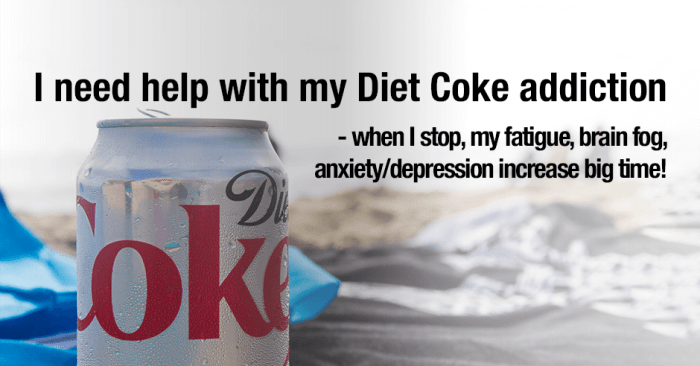
You’ve successfully navigated the challenging journey of quitting Diet Coke. Now, the focus shifts to maintaining this newfound freedom and preventing relapse. This section explores strategies for sustaining a Diet Coke-free lifestyle, understanding relapse triggers, and building a robust support system.
Strategies for Maintaining a Diet Coke-Free Lifestyle
Sustaining a Diet Coke-free lifestyle requires ongoing commitment and proactive strategies. The following tips can help you maintain your progress and enjoy the long-term benefits of quitting.
- Celebrate Your Successes: Acknowledge your achievements, no matter how small they may seem. Reward yourself with non-food-related activities, such as spending time with loved ones, pursuing a hobby, or indulging in a relaxing spa day.
- Develop a Routine: Establish a consistent daily routine that minimizes exposure to Diet Coke triggers. For example, plan your meals and snacks in advance, and avoid situations where Diet Coke is readily available.
- Find Alternative Activities: Identify activities that can replace the habit of drinking Diet Coke. Explore new hobbies, engage in social activities, or simply take a walk in nature.
- Stay Hydrated: Water is essential for overall health and can help curb cravings. Carry a reusable water bottle with you and aim to drink plenty of water throughout the day.
- Seek Support: Connect with friends, family, or a support group who can provide encouragement and accountability. Share your goals and challenges with them, and lean on their support when you need it most.
Preventing Relapse and Avoiding Temptation
Relapse is a common challenge when breaking any habit. Recognizing and managing relapse triggers is crucial for long-term success.
- Identify Your Triggers: Determine the situations, emotions, or environments that make you crave Diet Coke. This could include stress, boredom, social gatherings, or specific times of day.
- Develop Coping Mechanisms: Create a plan to manage your triggers. This might involve engaging in a relaxing activity, practicing mindfulness, or reaching out to a support person.
- Avoid High-Risk Situations: If possible, minimize exposure to environments where Diet Coke is readily available. For example, you might avoid certain restaurants or social gatherings where Diet Coke is the norm.
- Focus on the Benefits: Remind yourself of the positive reasons you quit Diet Coke. This could include improved health, increased energy levels, or a sense of accomplishment.
- Seek Professional Help: If you struggle with relapse, consider seeking professional support from a therapist or counselor. They can provide guidance and tools to help you overcome your challenges.
Healthy Alternatives to Diet Coke
Finding satisfying alternatives to Diet Coke is essential for long-term success. Here are some healthy options that can help you stay hydrated and satisfied:
- Water: The most basic and essential beverage for hydration. Add slices of fruit, cucumber, or herbs for flavor.
- Sparkling Water: Provides a bubbly sensation similar to Diet Coke. Choose varieties with natural flavors or add your own fruit or herbs.
- Unsweetened Tea: A refreshing and healthy alternative, available in various flavors. Opt for green, black, or herbal teas.
- Fruit-Infused Water: Add slices of your favorite fruits, such as berries, citrus fruits, or melons, to water for a natural sweetness.
- Smoothies: Blend fruits, vegetables, and yogurt for a nutritious and satisfying drink.
Conclusive Thoughts: How To Quit Diet Coke
Quitting Diet Coke isn’t about deprivation; it’s about taking charge of your health and well-being. By understanding the addictive nature of this beverage, identifying your triggers, and implementing a gradual reduction plan, you can successfully break free from the cycle of Diet Coke consumption. Remember, you’re not alone in this journey. Embrace healthy lifestyle changes, seek support from others, and celebrate your progress every step of the way. You have the power to reclaim your health and enjoy a more fulfilling, vibrant life without the reliance on Diet Coke.
FAQ Guide
What are some healthy alternatives to Diet Coke?
Water, sparkling water with a splash of fruit juice, herbal tea, unsweetened iced tea, and fruit-infused water are all great alternatives to Diet Coke.
How long does it take to get over Diet Coke withdrawal symptoms?
The duration of withdrawal symptoms varies from person to person, but most symptoms subside within a week or two. Staying hydrated, getting enough sleep, and practicing relaxation techniques can help manage these symptoms.
Is it possible to quit Diet Coke cold turkey?
While quitting cold turkey is possible, it can be challenging due to withdrawal symptoms. A gradual reduction approach is often more manageable and sustainable.
Can I still enjoy Diet Coke occasionally after quitting?
It’s best to avoid Diet Coke altogether to prevent relapse. However, if you find yourself craving it, try to have it in moderation and be mindful of your triggers.















